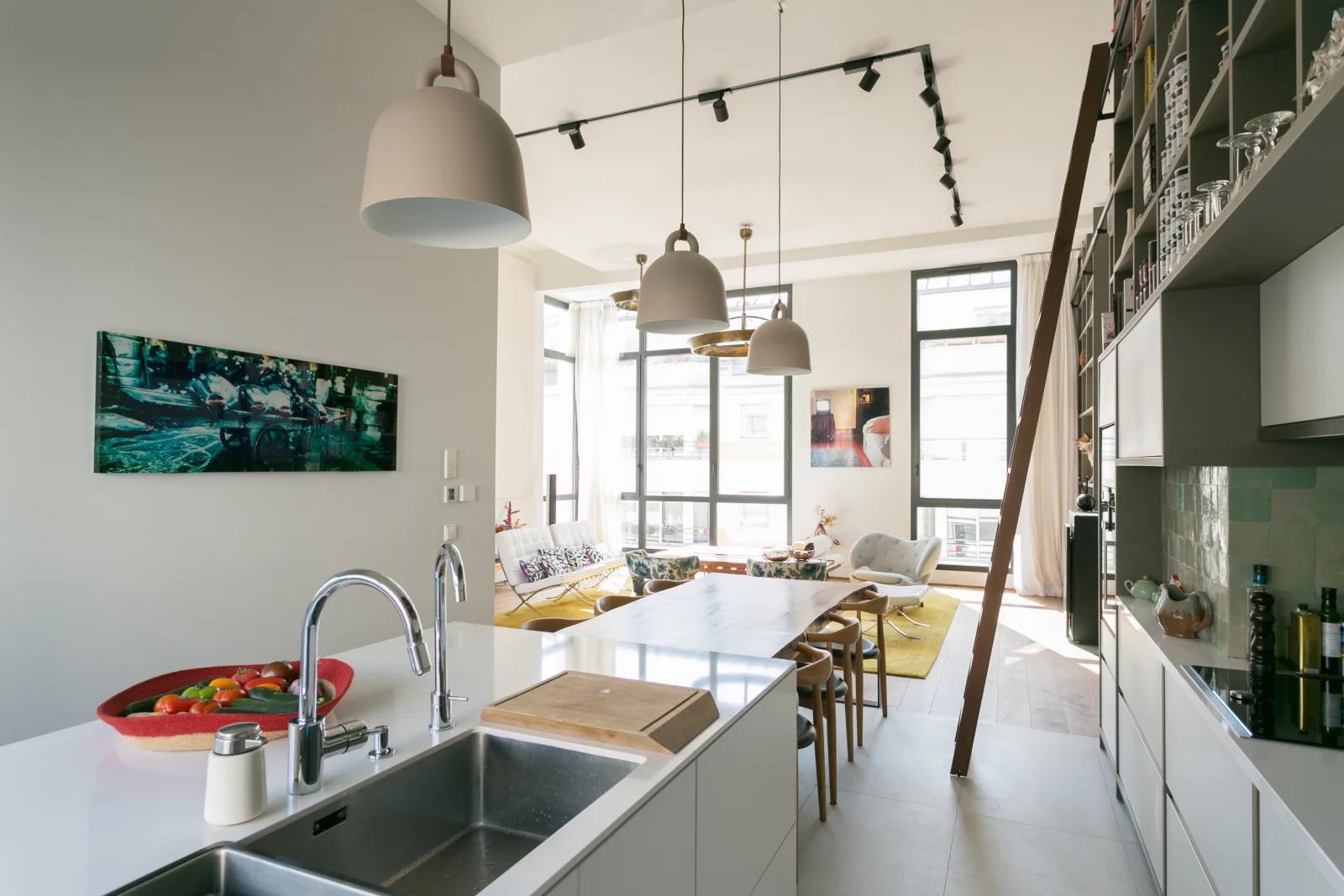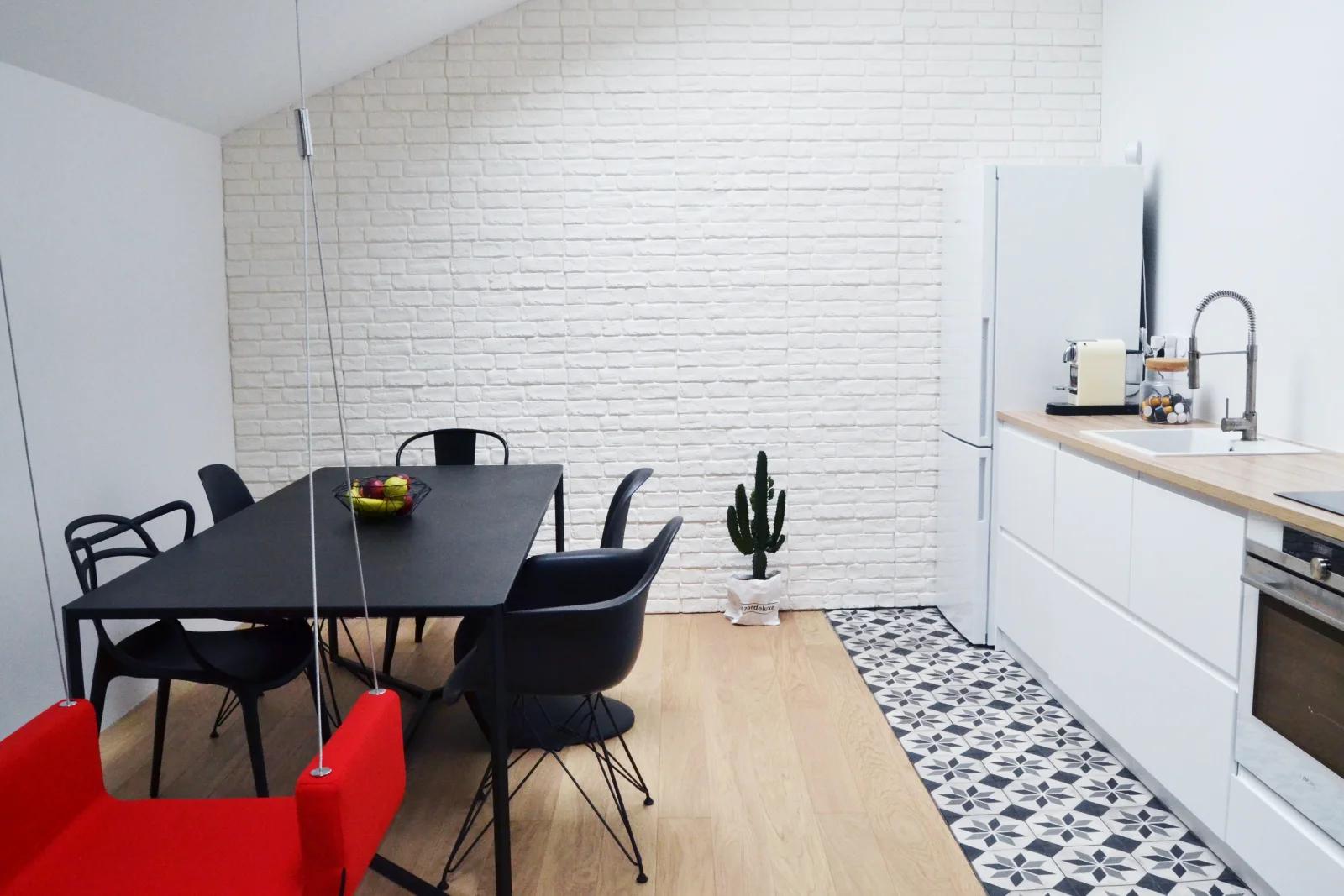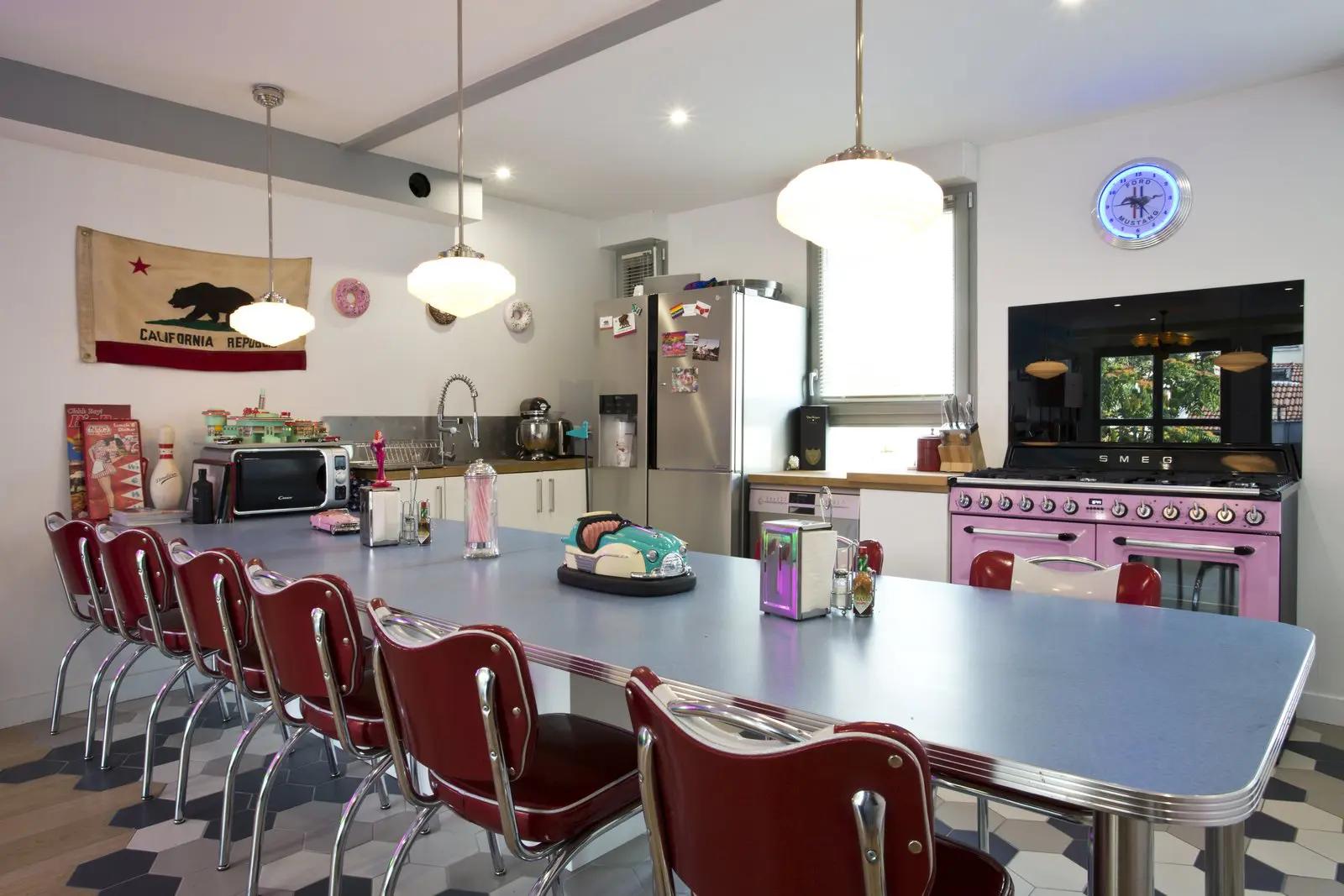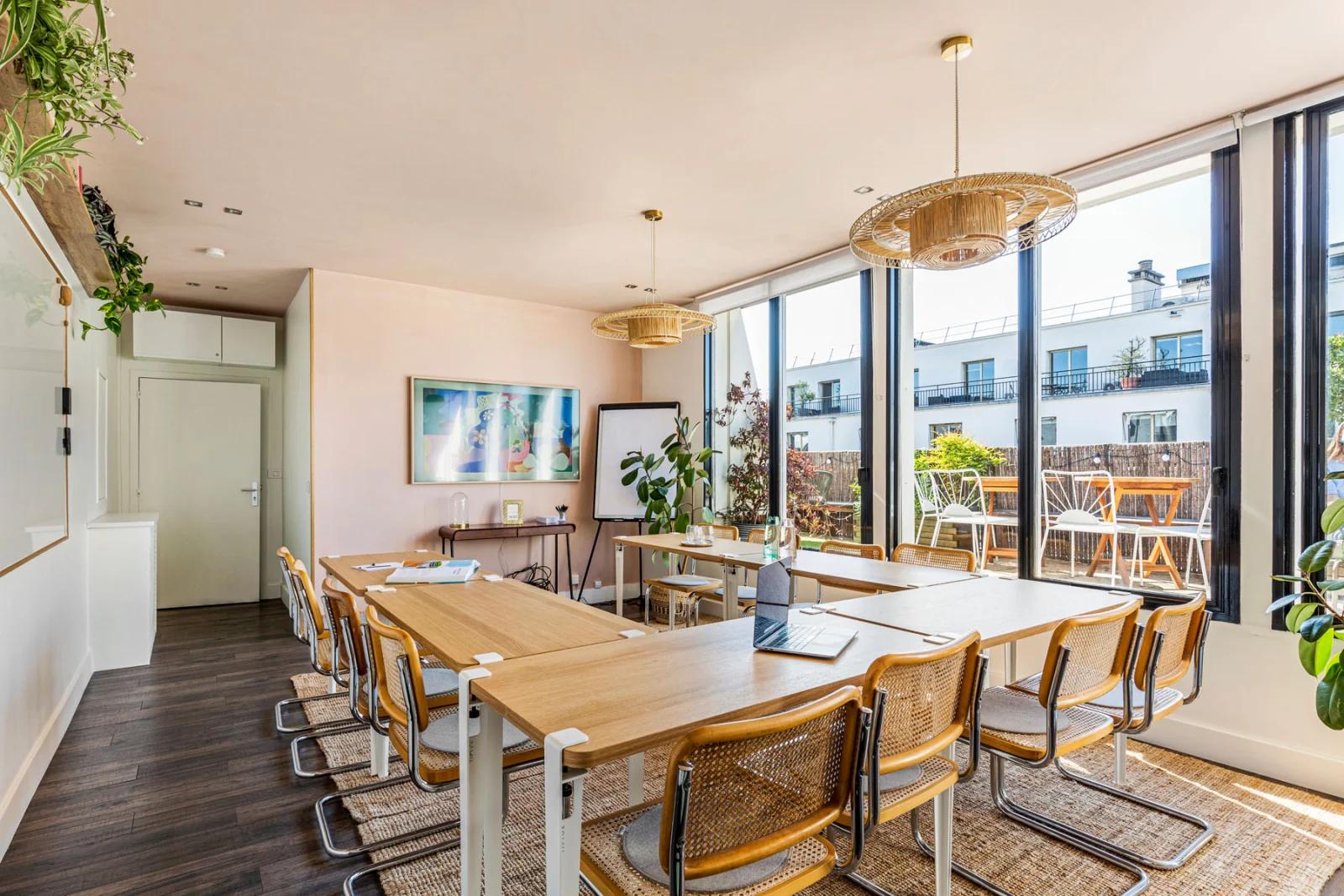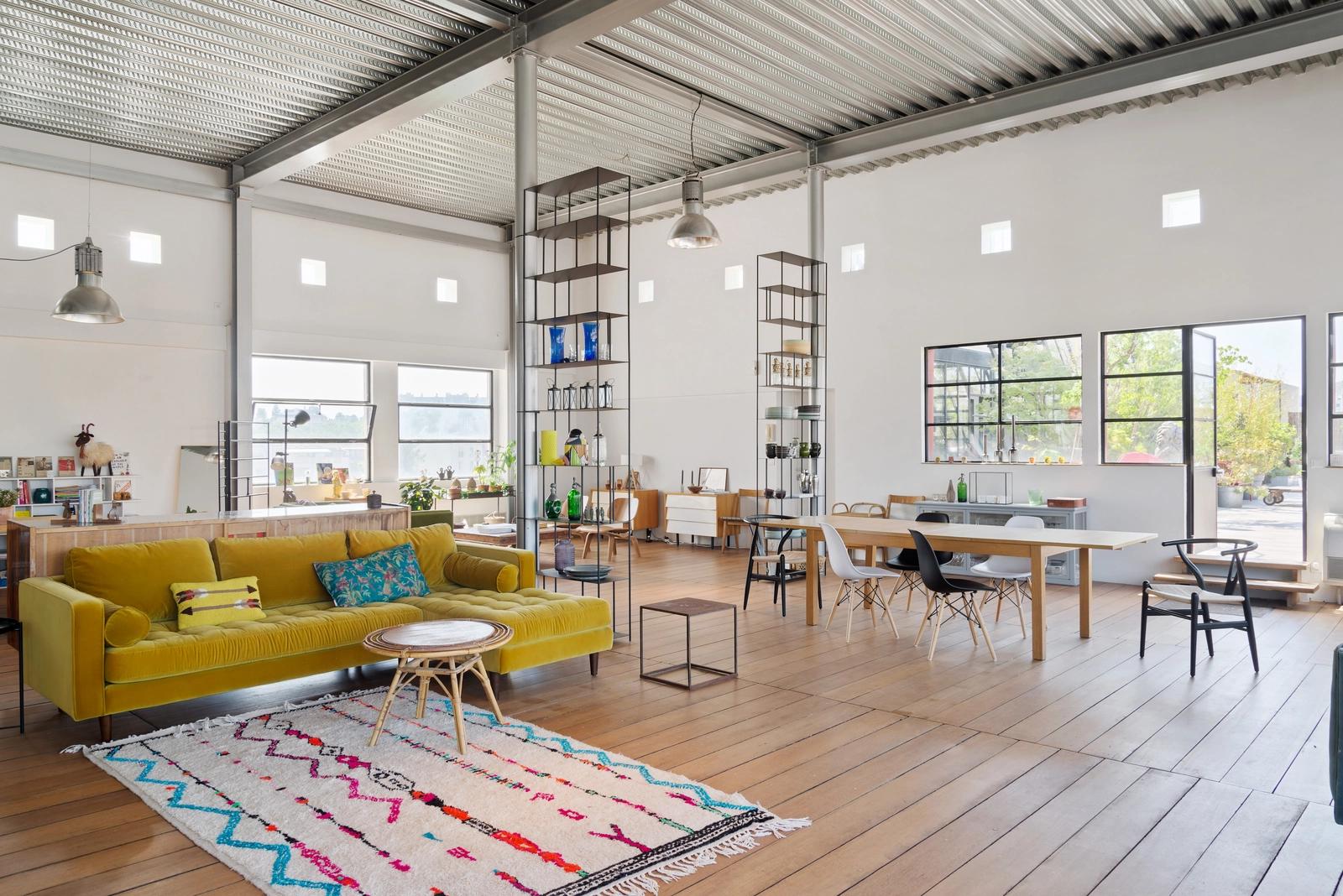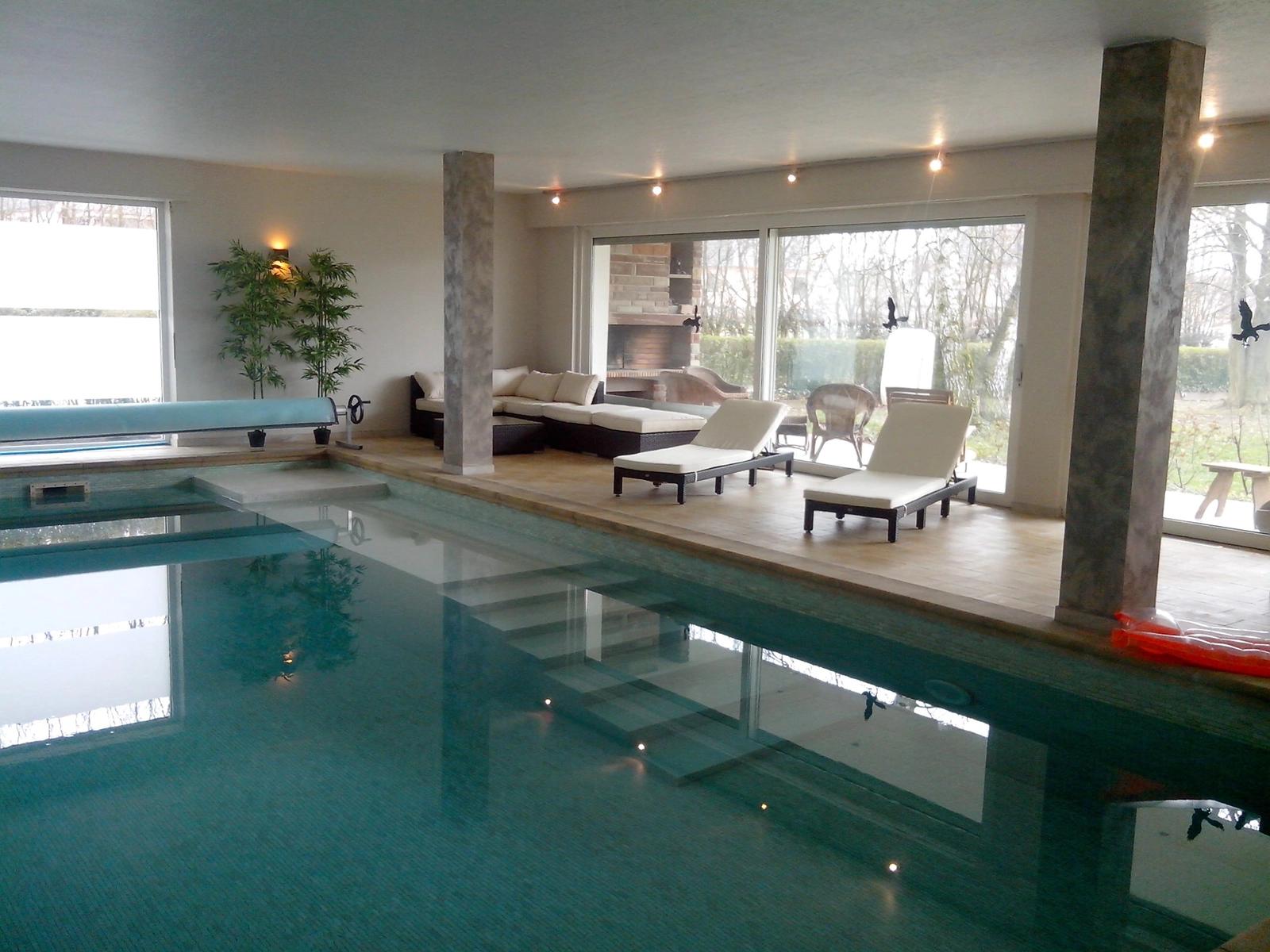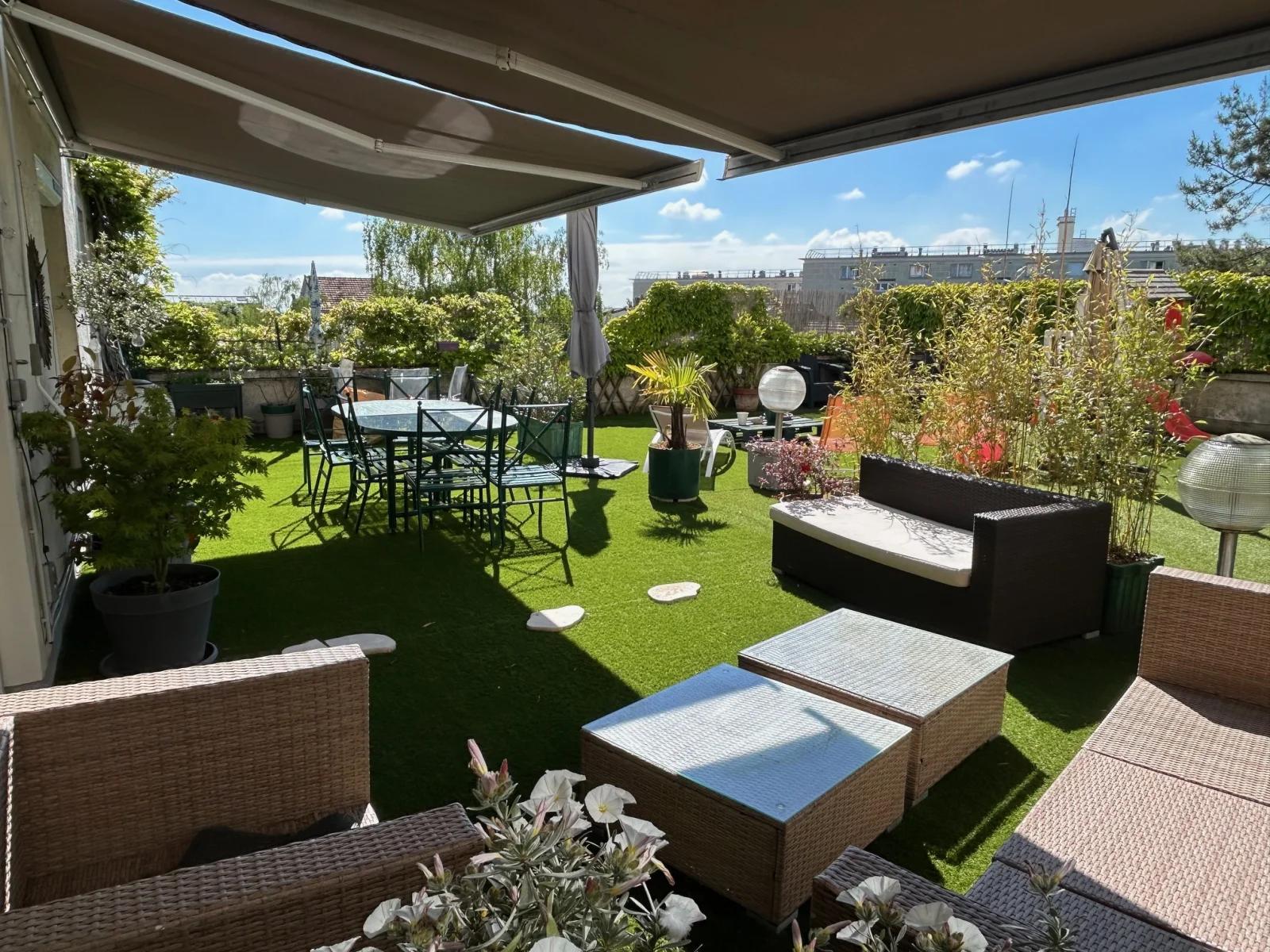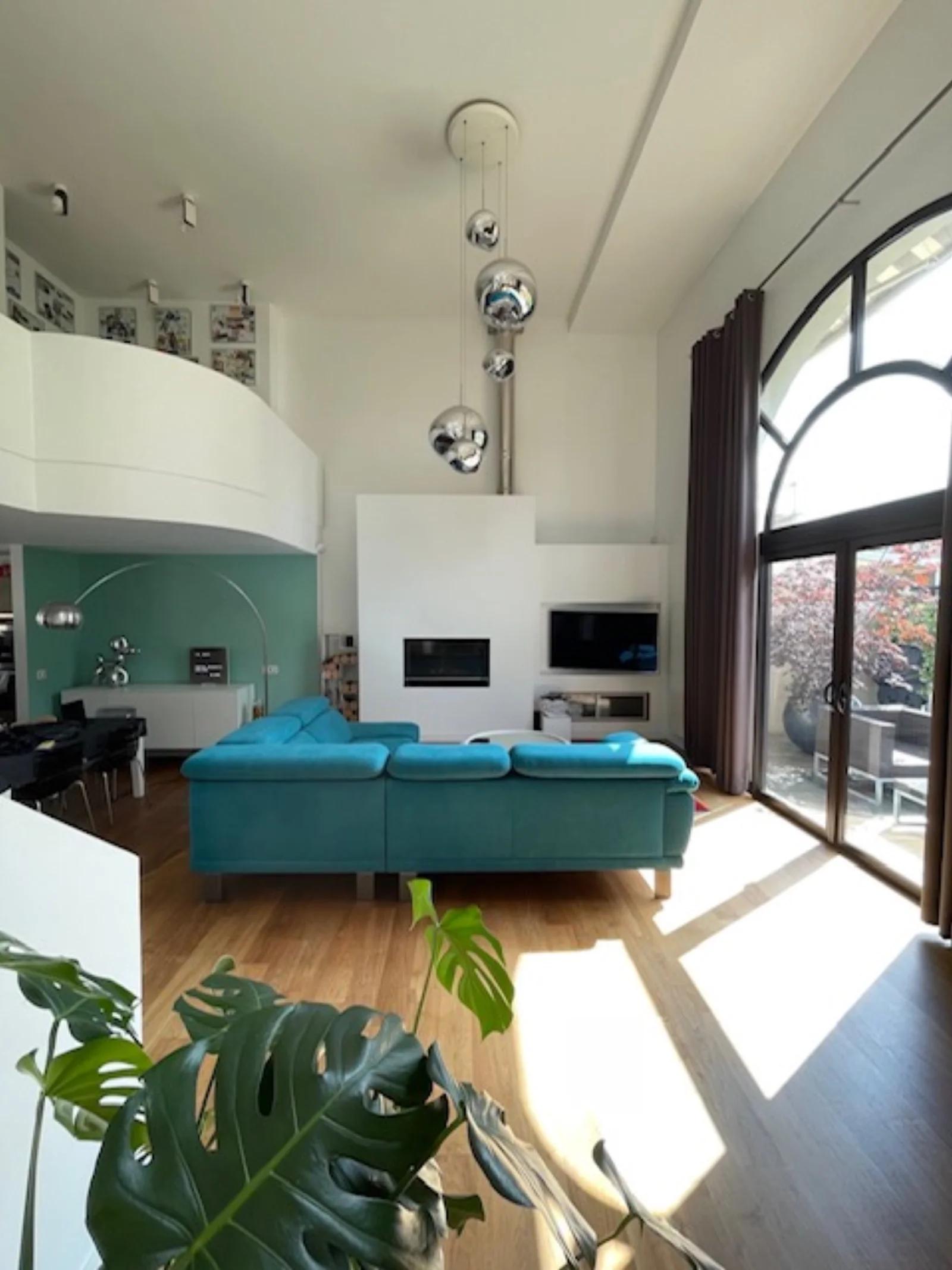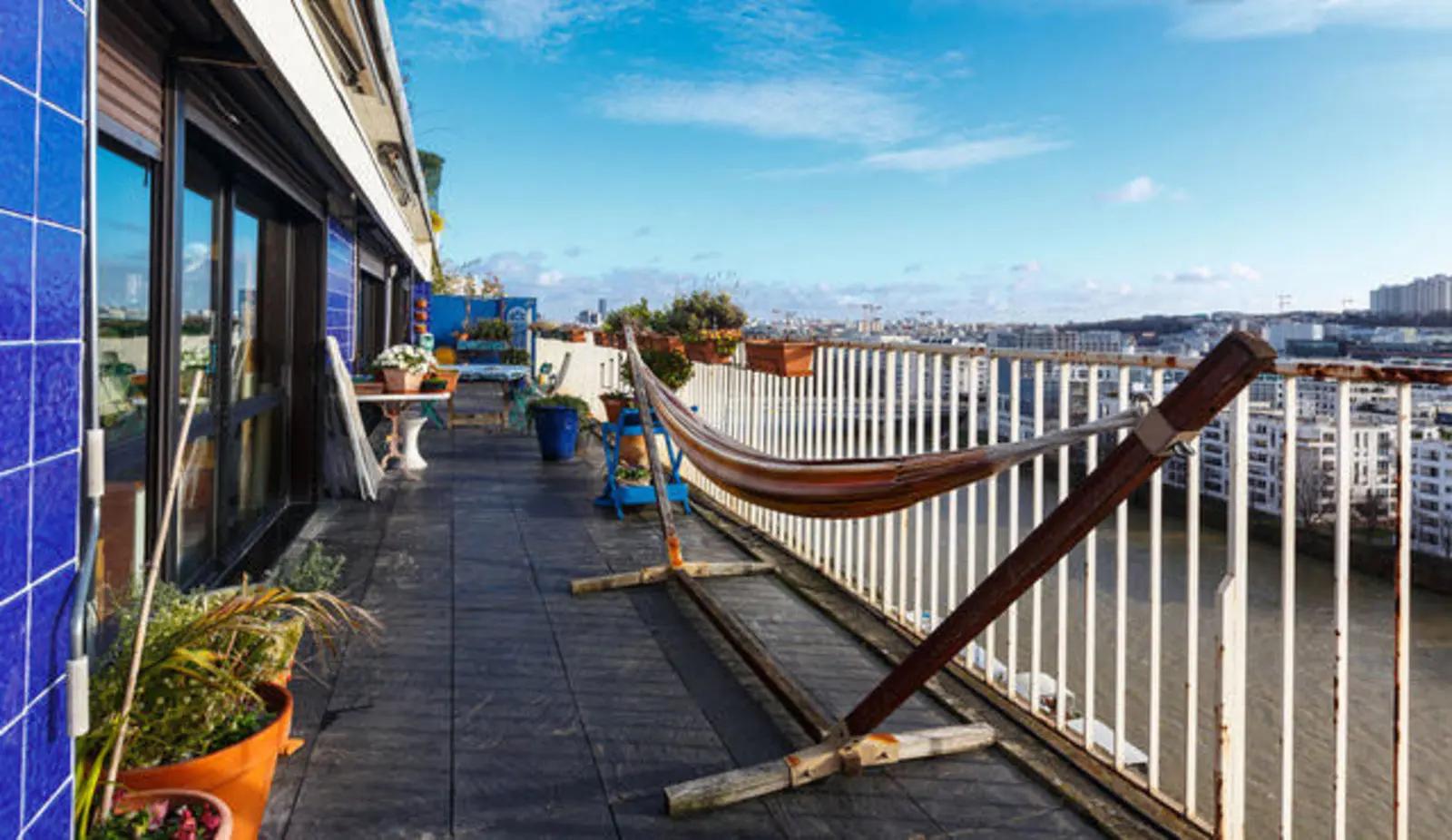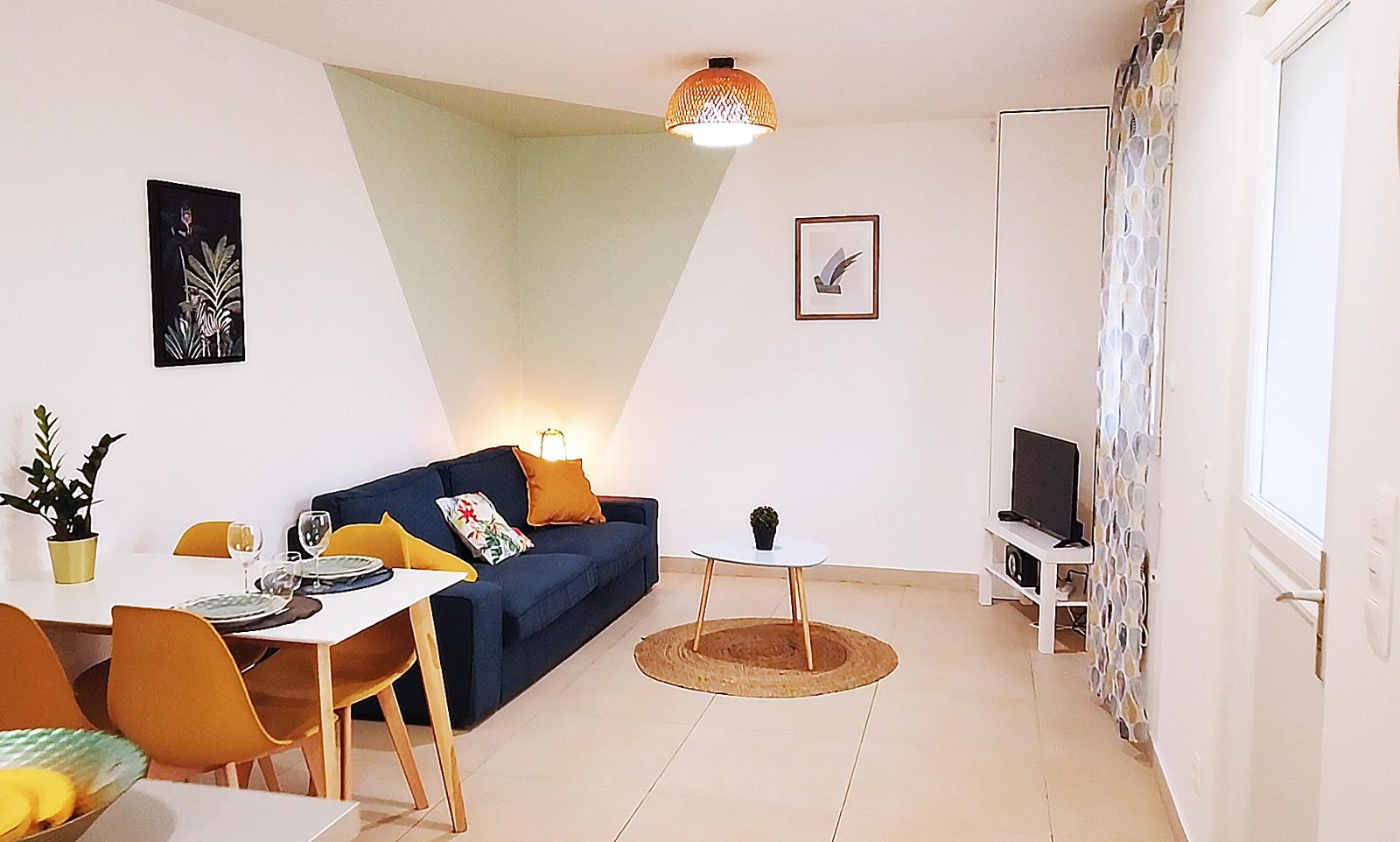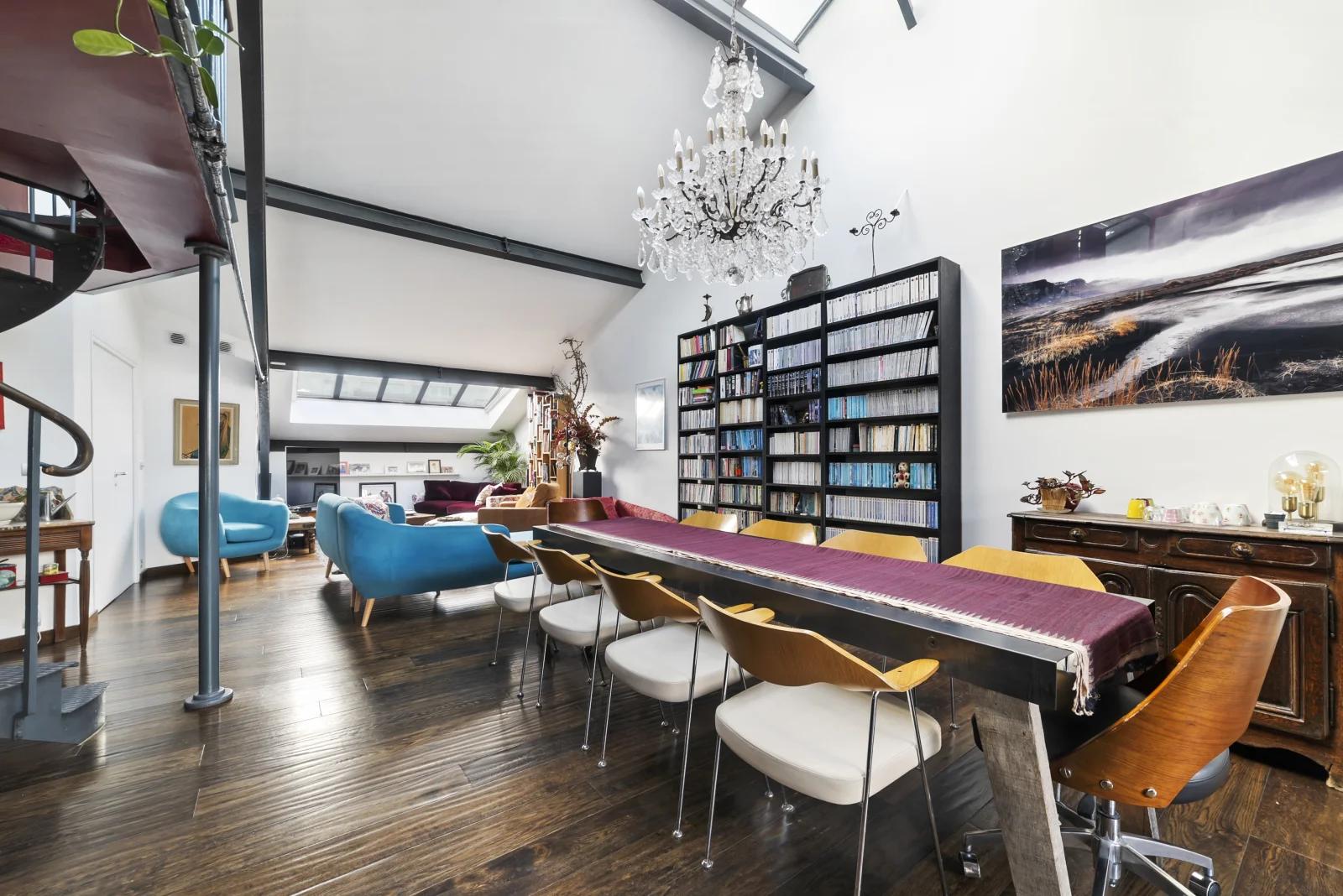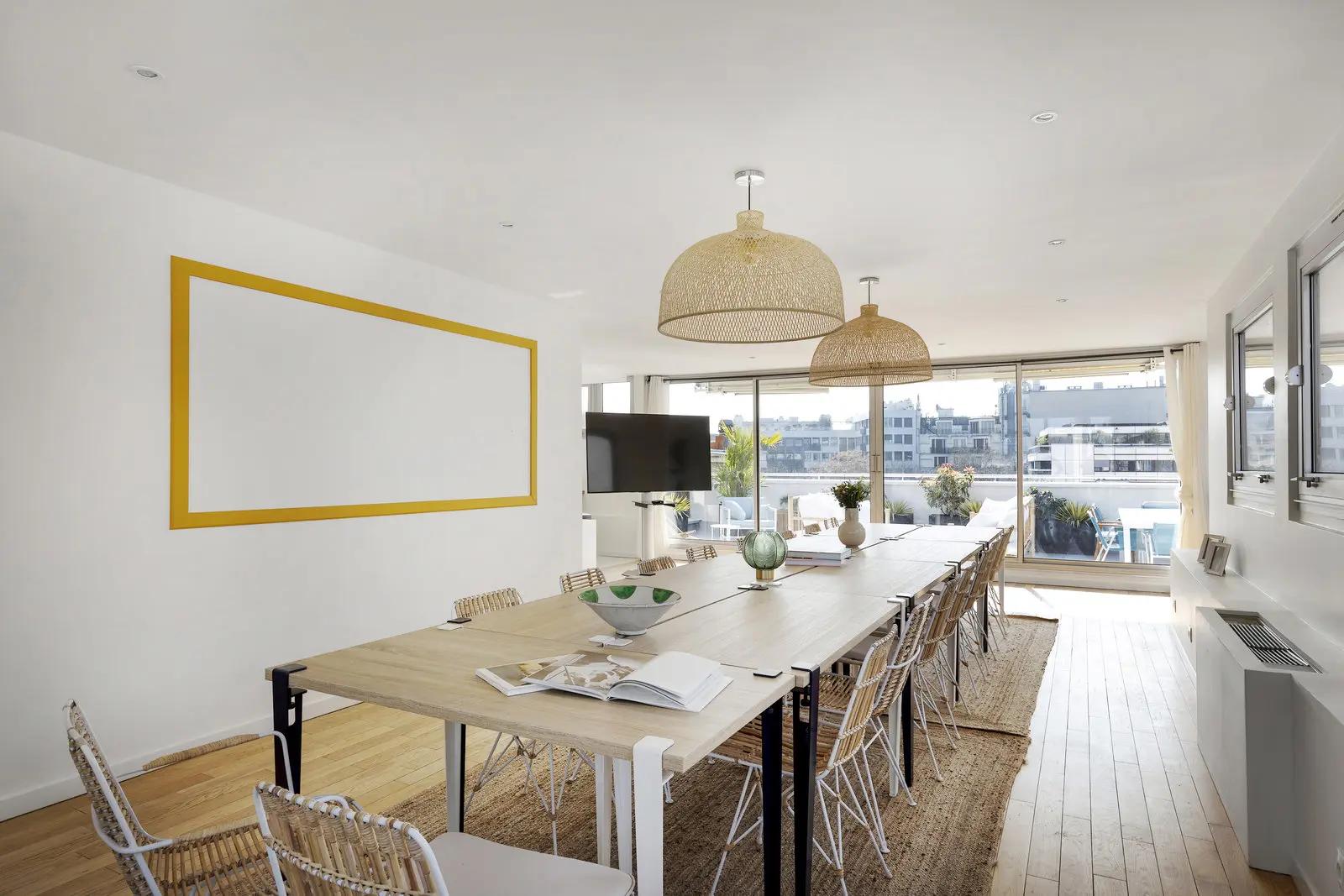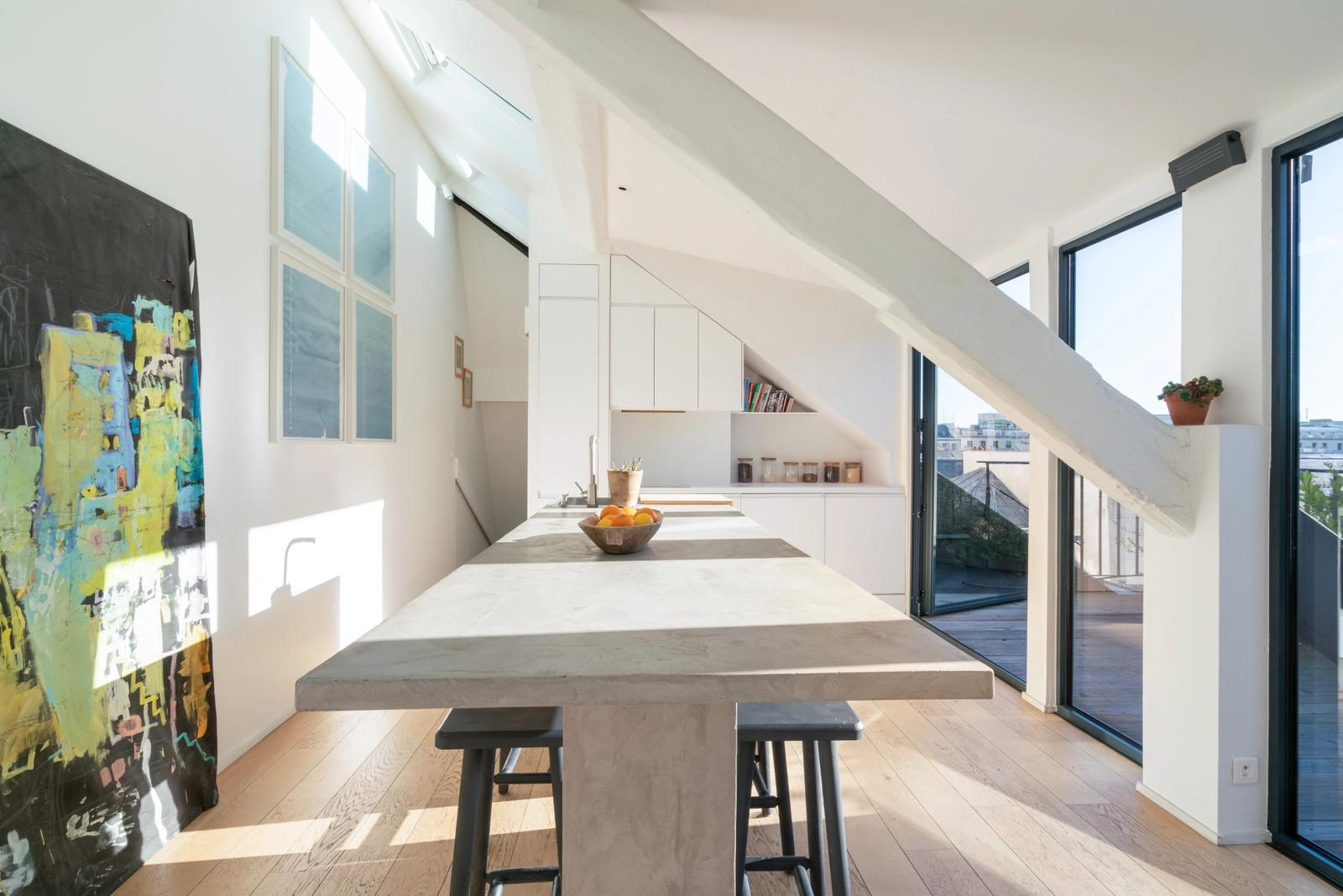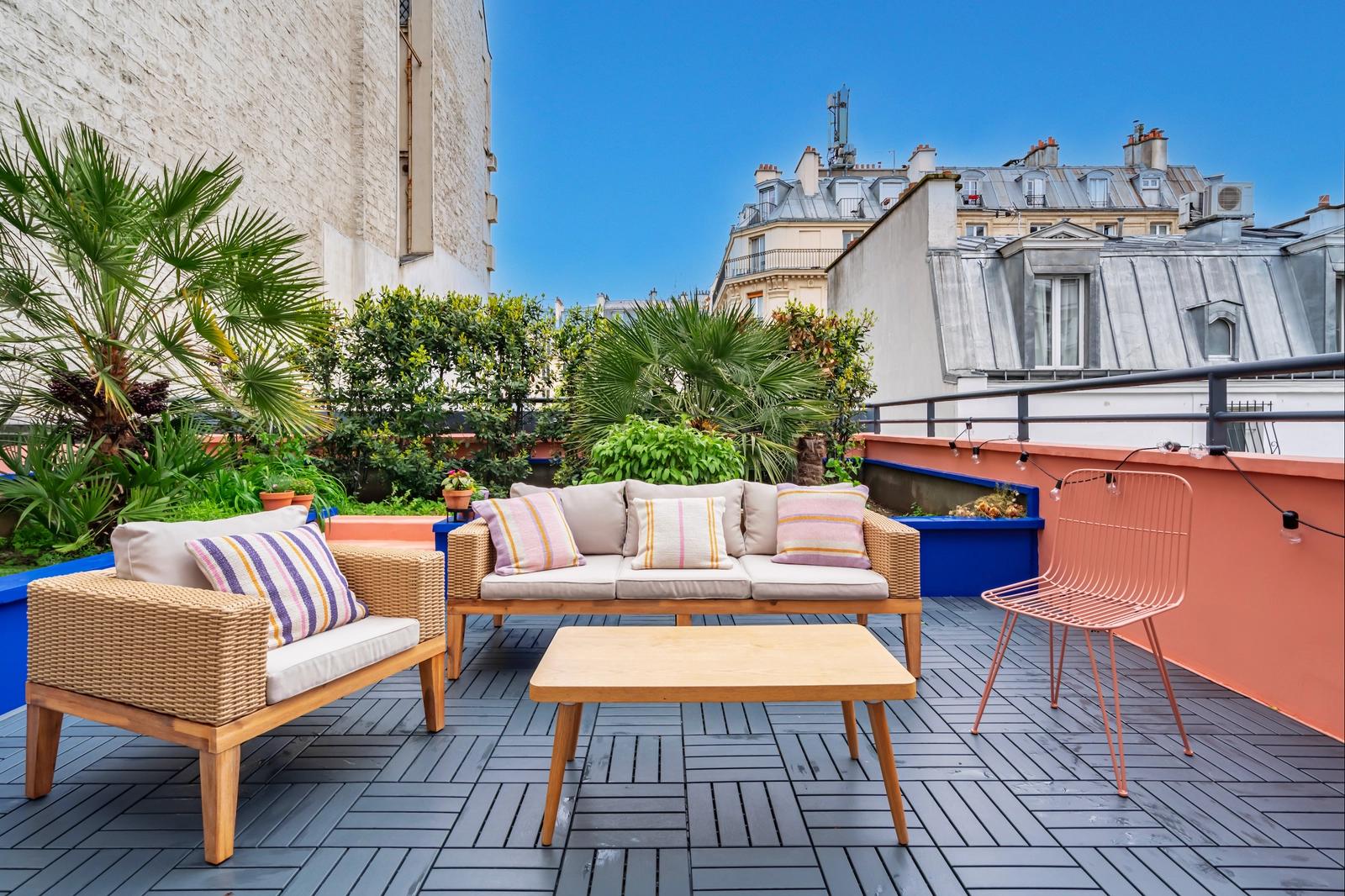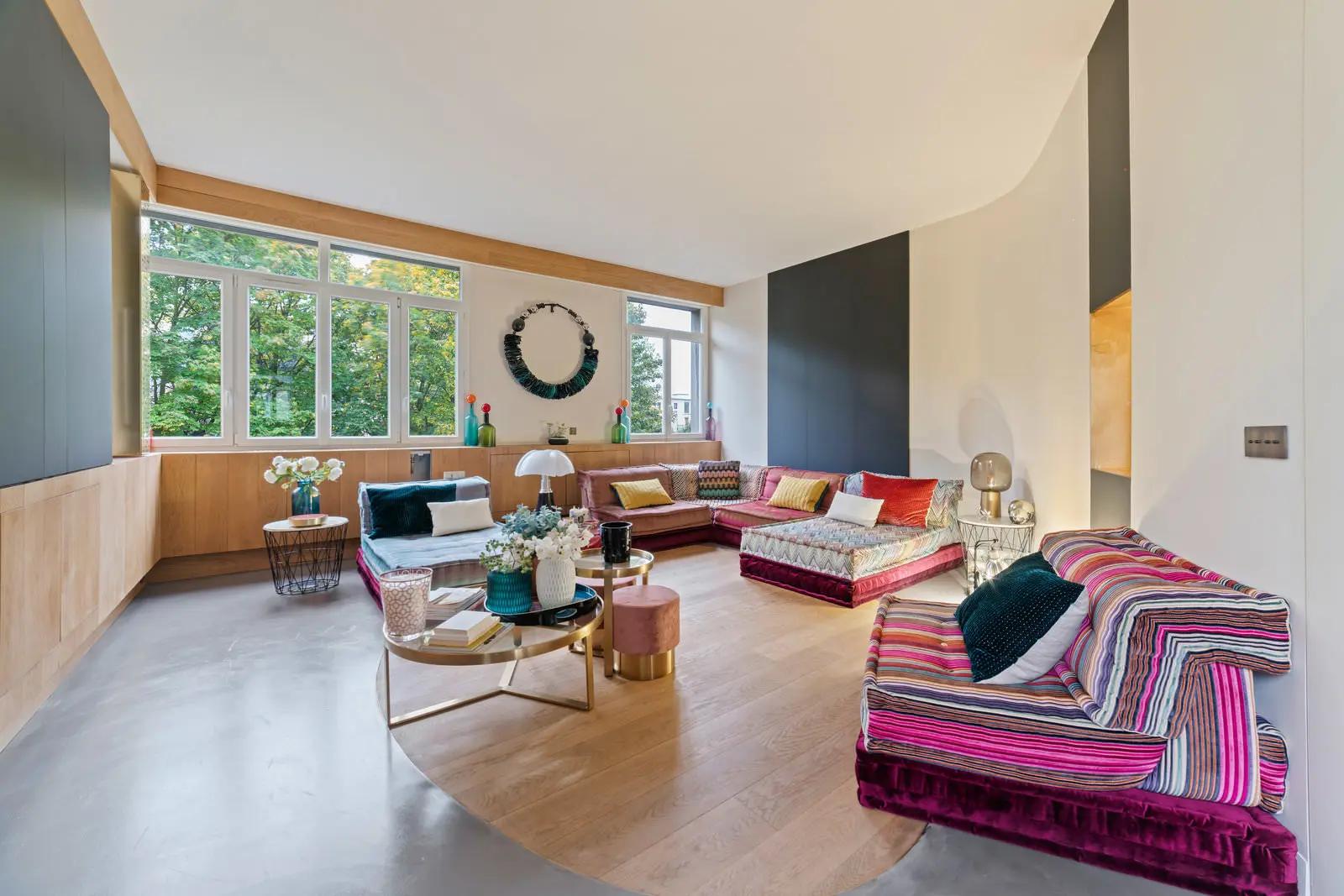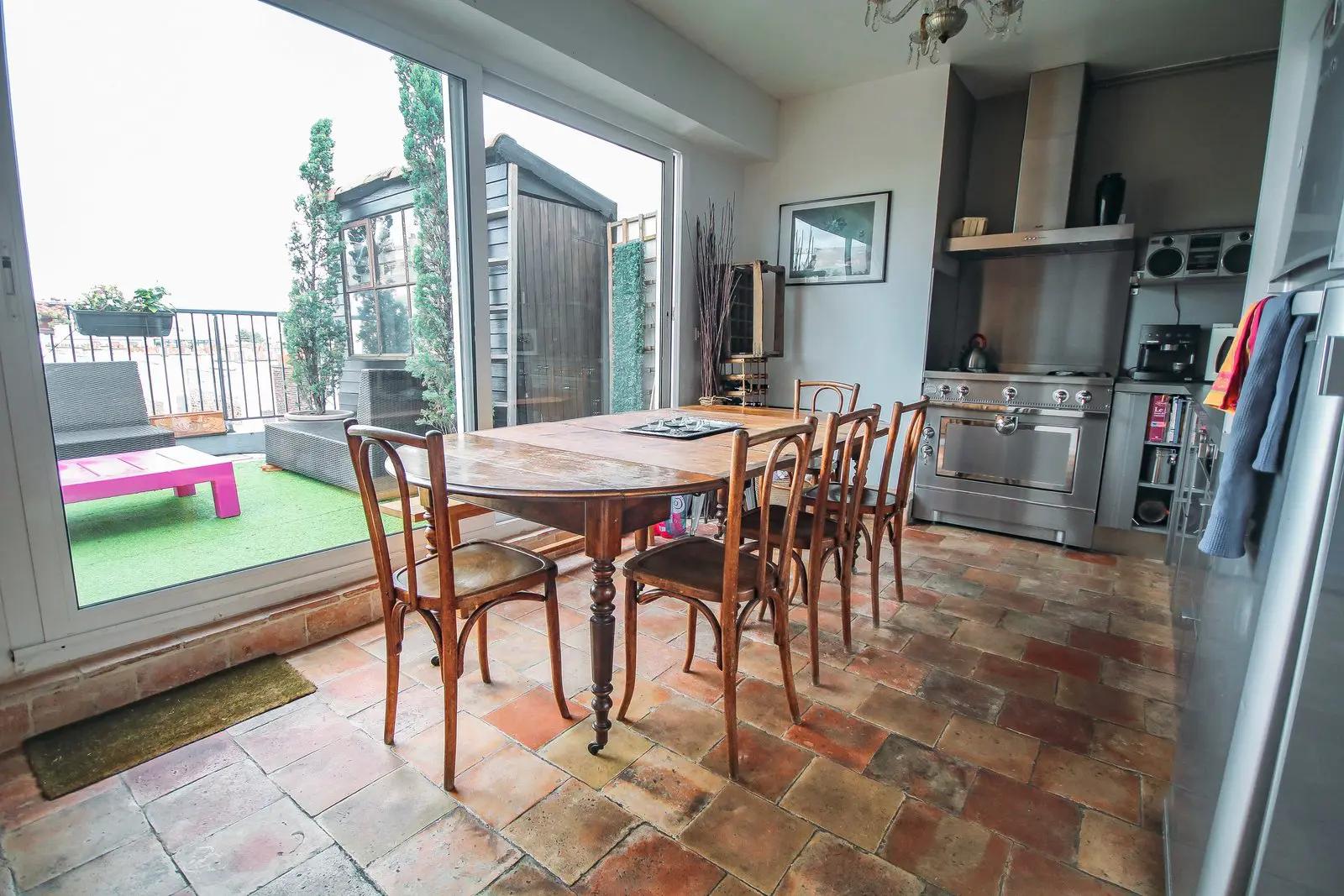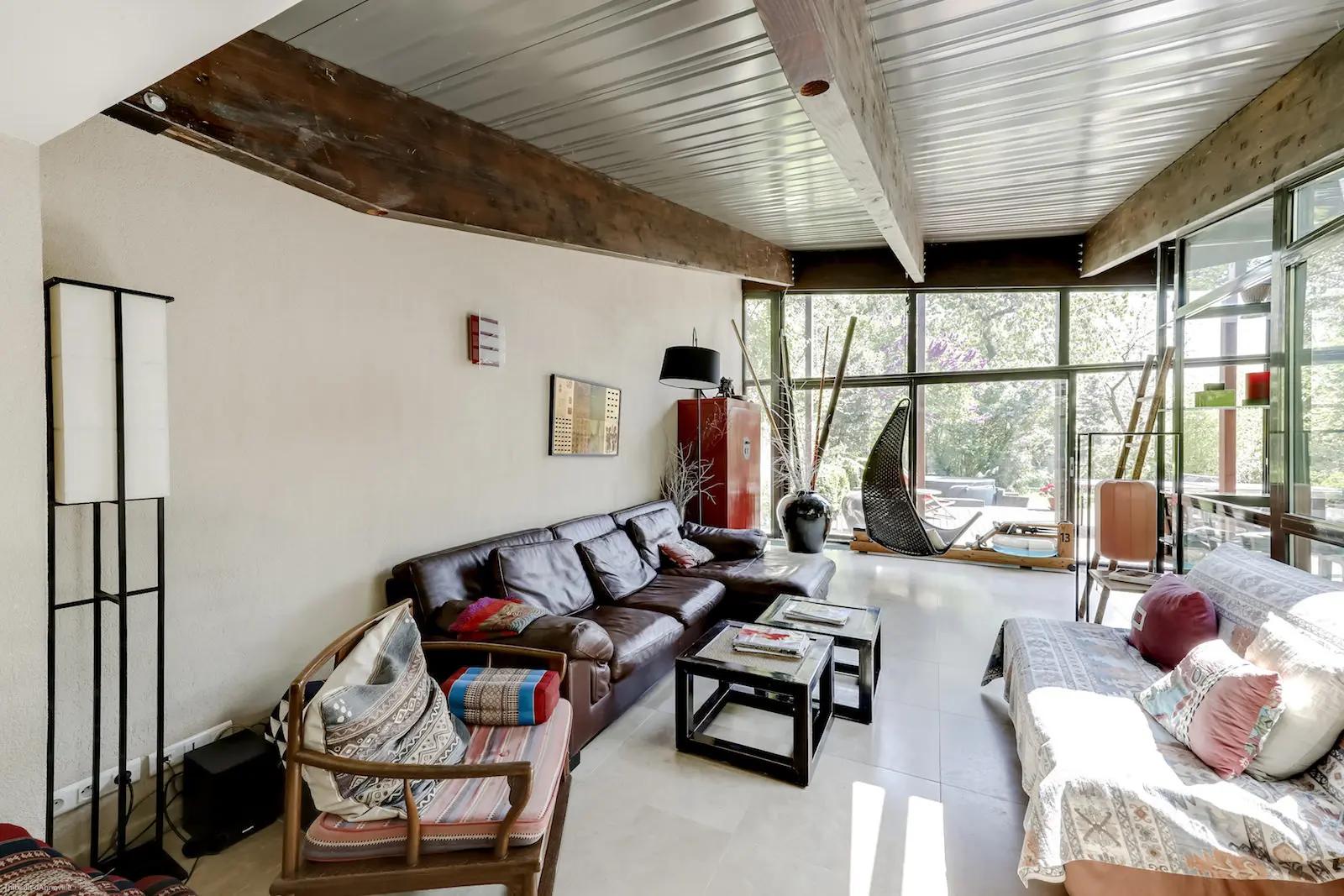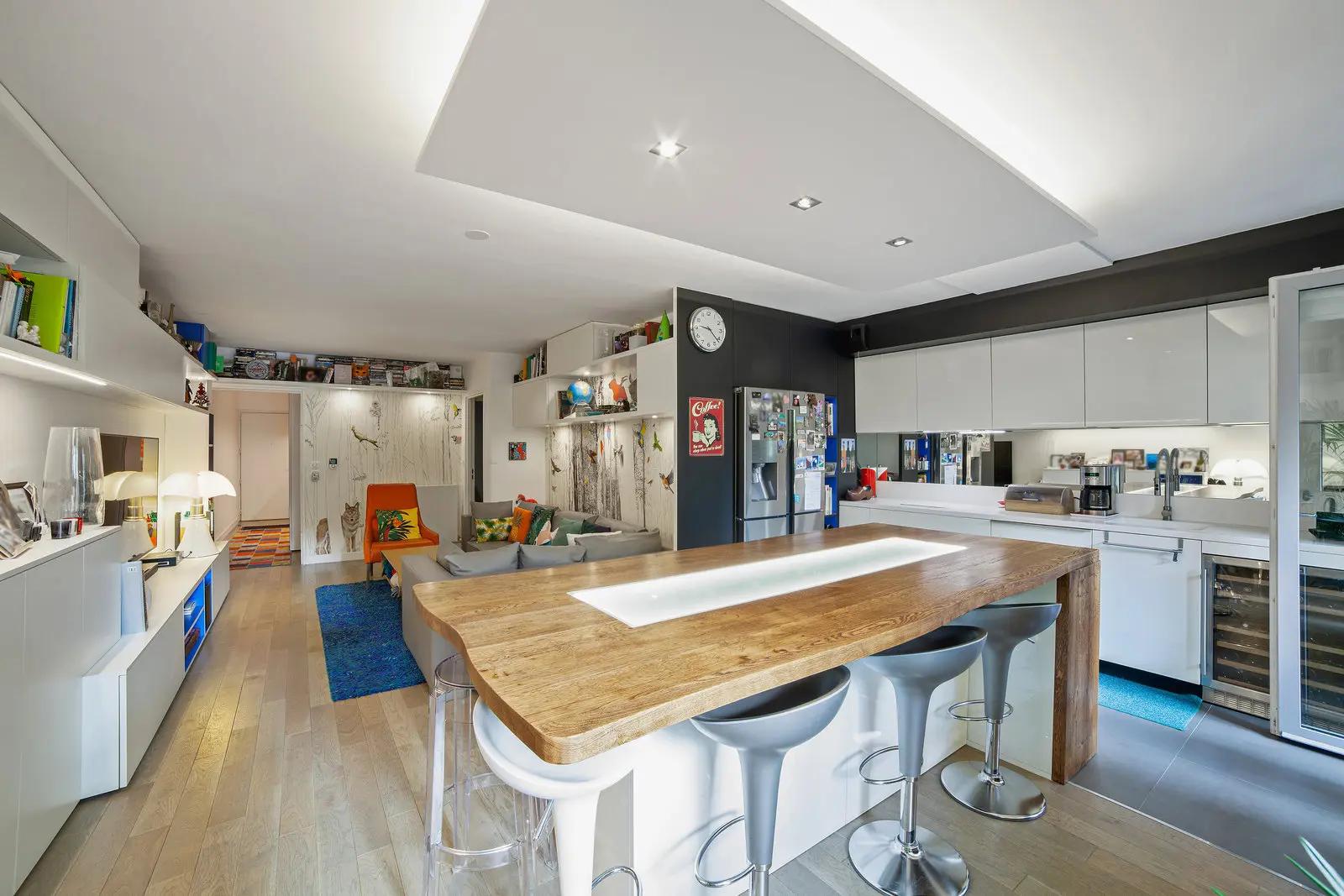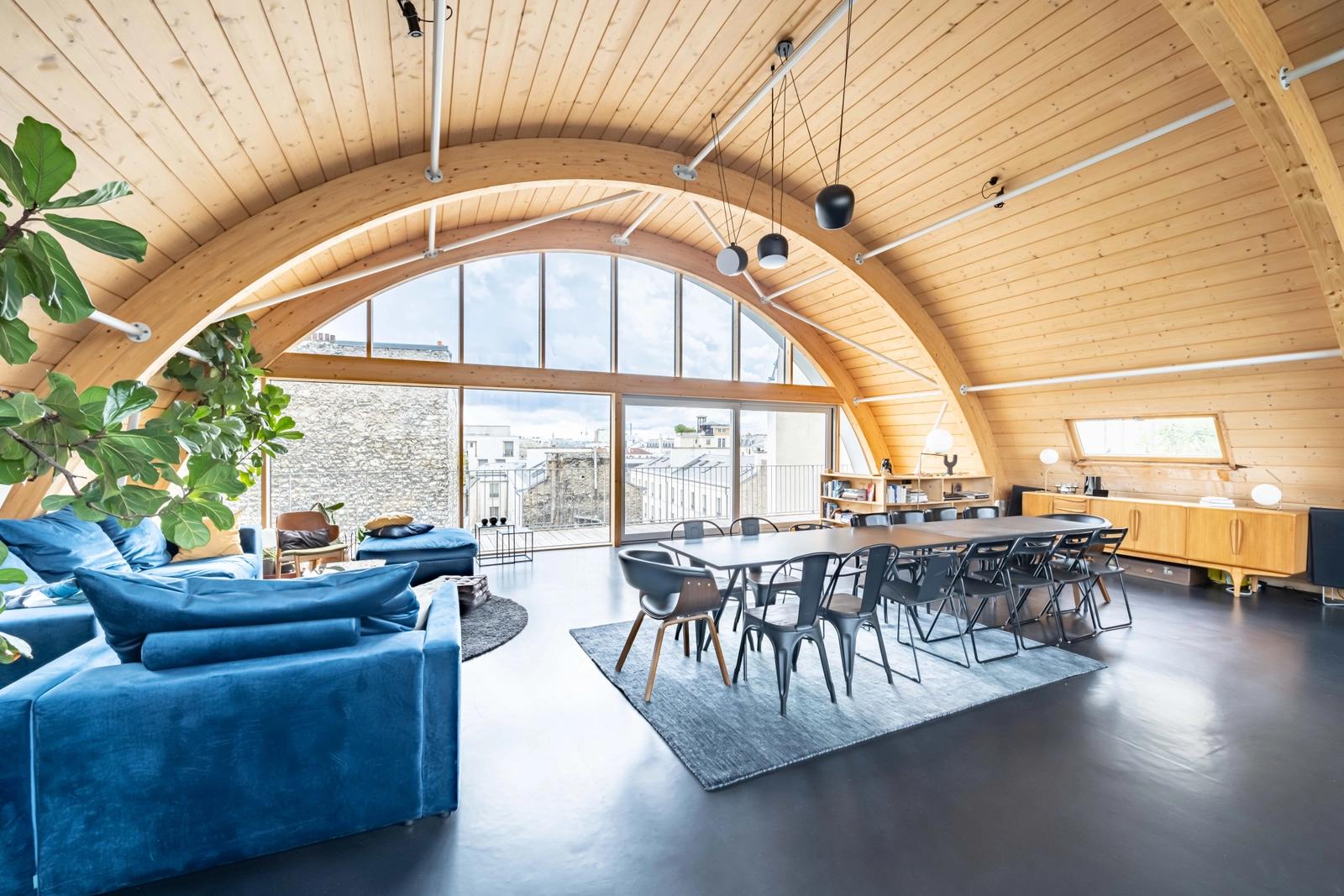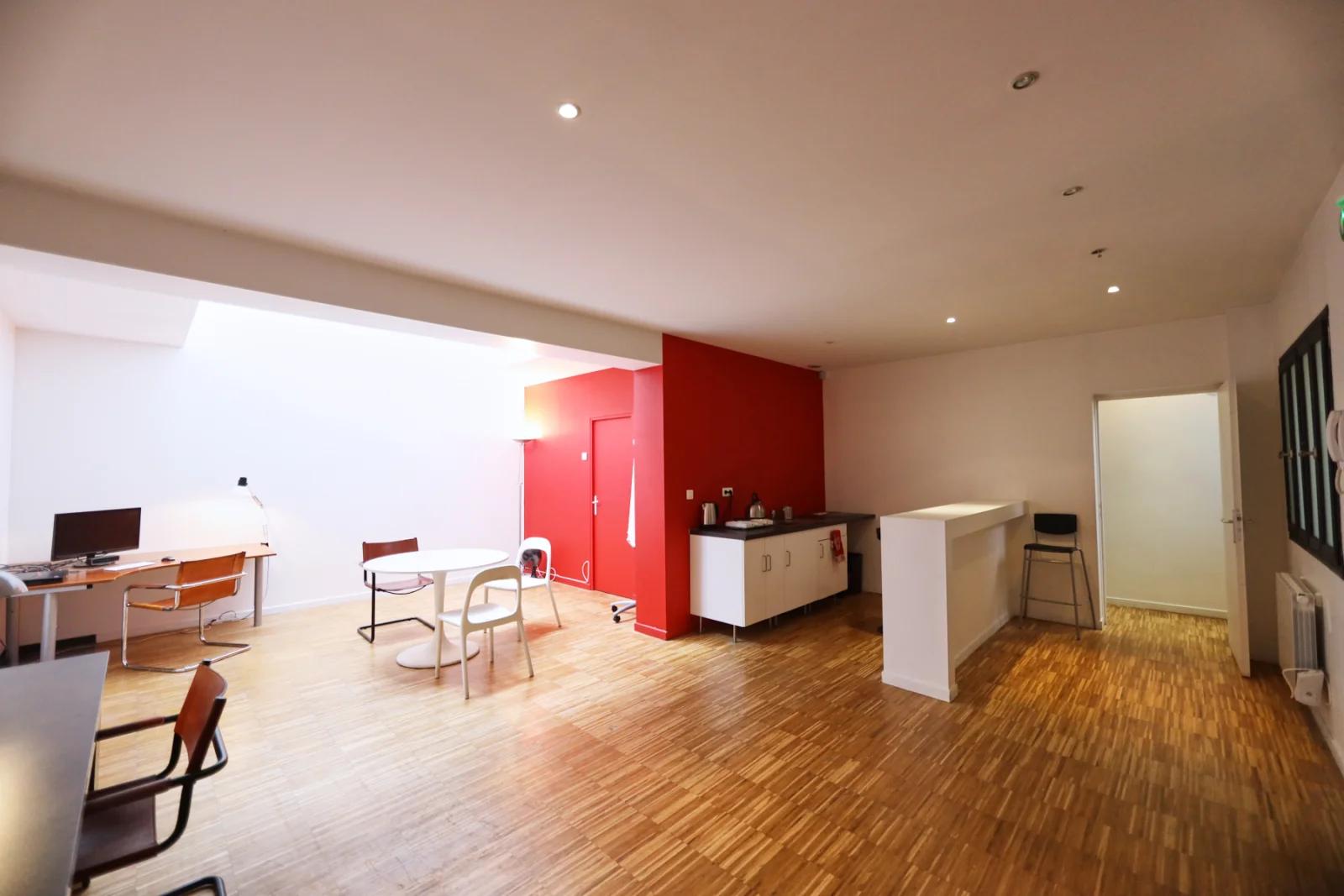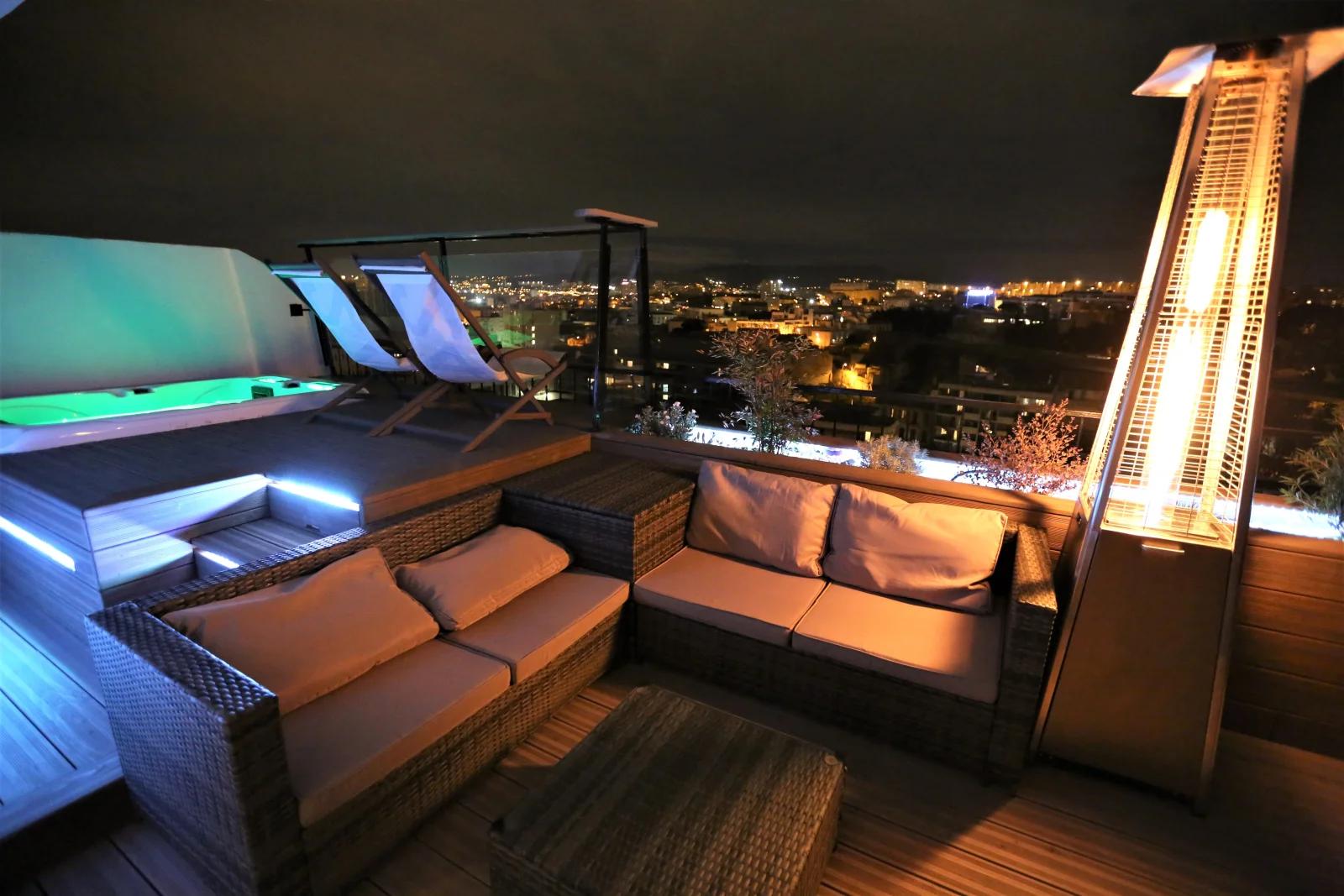Rooftop for hire with OfficeRiders
Thousands of hosts welcome your professional activities
With Paris's largest rooftop soon to open in Montparnasse, rooftop terraces continue to proliferate: once considered mere rooftops, these spaces are now being recycled and optimized to become the nec plus ultra of the trendy. From trendy restaurants and bars, to athletic fields and beekeeping playgrounds, it's now the turn of professionals to take over the city's rooftops. Whether for meetings, seminars, conferences, events or production, the workspace is being reinvented with one aim in mind: to nestle in the unusual.
Rooftop, not just a terrace: a trend
In Paris, flat roofs don't run wild: in the French capital, when you climb to the top, it's to contemplate mountains made of slate. On the other side of the Atlantic, skyscrapers have long since explored the resources of their flat heads to house restaurants and bars: the view is a cultural element of horizontal cities like New York to contemplate the Skyline or Chicago. And by the time the term "Rooftop " crossed the Atlantic, it had forged a reputation worthy of the name: while arousing curiosity and mystery, it evokes elegance and cool attitude, accompanied by DJ sets and after-work cocktails. And yet, as early as the 30s, Le Corbusier was already presenting his flat-roofed buildings... In the wake of this craze, Rooftops have sprung up like mushrooms in the capital. Incidentally, we don't call them roof-terraces, but Rooftops, to retain their trendy, upmarket personality. The BHV opened its own Rooftop, pointing out that as the neighborhood had changed and evolved, so had its clientele's desire for originality. The Rooftop is all about exoticism and elitism, as evidenced by the often inflated prices offered in these spaces. In the ivory tower, you can spy without being seen! But in the end, this craze is also spreading to private spaces. In addition to high-rise buildings, more and more homes are being designed with flat roofs, as is the case in Brittany or 30% of all homes. Owners aren't keeping their "fifth facade" to themselves, and are happy to share their homes on collaborative platforms like Airbnb (overnight rentals) or OfficeRiders (daytime rentals, for business use). In the same vein, the "penthouse" is on the rise, but in this case it's an entire dwelling housed on the roof. We're witnessing a metamorphosis in architectural criteria. As rooftops become commonplace, their uses diversify.
The Rooftop, a challenge for the Smart City
As the ground becomes saturated and the population continues to grow, vertical constructions become ideal alternatives. The proof is in today's phenomenal constructions: Saudi Arabia soon hopes to surpass the 828-metre Dubai Tower! But why set out to conquer the sky when there's so much left to do?
Equipos y servicios para profesionales
Rooftops are perceived as unused spaces that should also be optimized. As well as being a leisure activity, rooftops are becoming more ecological and responsible by becoming planted with vegetation. With a choice of lawn, garden or farm roofs, they can also accommodate solar and photovoltaic panels, as well as domestic wind turbines. Rooftops around the world are already subject to legislation aimed at integrating an ecological vision into these spaces: in Tokyo, at least 20% of rooftops must be greened if they are over 1,000 square meters. In France, since 2016, buildings have been required to incorporate green roofs, with the aim of achieving "100 hectares of green roofs and walls in Paris by 2020". Modern architecture therefore incorporates these criteria into new constructions to promote openings to the sky: for cities, this is a differentiating factor. Even if the rooftops of Paris almost became a UNESCO World Heritage Site... Some go even further: articles proclaiming urban farming as the future of agriculture are proliferating. And why not? It's a space favorable to plant development. Flat roofs reduce CO2 emissions, promote biodiversity and filter wastewater. As much as it is in the wind, the rooftop must be natural: the BHV, while proudly displaying its rooftop bar, is also installing a 200-square-meter hanging garden.
When professionals take to the skies and invest in rooftops
When hotels, bars and restaurants held the monopoly of the rooftop, they were also the places of choice for businessmen. Their visual dominance over the city and the elitism of their clientele made them ideal spaces for developing a more informal professional sociability. Just as rooftop vegetable gardens (topagers) and restaurants are a way of forging links, it seems that rooftops are also spaces for socializing. Today, we're witnessing a diversification of rooftop styles due to their democratization: rooftops the world over have also embarked on a race for the unusual to distinguish themselves from one another. In this ranking, we find : rooftop cinema, rooftop aquatic, rooftop green, rooftop amusement park, rooftop race track, rooftop multicolor or political... But just because rooftops have been "liberated", it doesn't mean that professionals no longer invest in them: quite the contrary. Working styles have also been liberated: in search of more inspiring, warmer or unique spaces, professionals are still just as seduced by rooftop terraces. Whether bohemian or bourgeois, green or modern, the rooftop has the ability to create a sense of wonder that is sure to leave a lasting impression. Even if they are still sensitive to seasonality, many rooftops are starting to dress up for winter with removable roofs: a real mise en abyme! The impact of workspace design on productivity no longer needs to be proven: each location conveys values that will influence the way workers feel. A bit like wearing a new pair of shoes on a date! When a company propels itself to the 10th floor to work, it's to send its employees to the top. It's also a way of asserting its values: flexibility, elegance, unusualness, domination. The workspace becomes both trendy and inspiring, yet smart and ecological, as it takes up residence in a green, recycled space. More and more players (whether startups, SMEs or major corporations) are now privatizing Rooftops for their events and thus differentiating themselves: not all Rooftops allow privatization, however. They're based on a business model that companies can't compete with. With the rise of live-in working, these professionals now have access to hidden and secret rooftops, unknown to most, far from the chaos of the city and with breathtaking views. Rates are becoming more affordable.
They offer a number of advantages over conventional rooftops. The possibility of privatizing a Mr. Dupont space allows you to :
- Avoid the much more costly privatization of a classic rooftop.
- In the case of non-privatization, enjoy a much quieter and, above all, exclusive and unique space.
- To be able to organize their meetings or professional events in a much more personalized way by choosing a space that reflects their image.
- Discover "turnkey" platform formulas that offer catering, equipment and activity extras (as is the case with OfficeRiders).
- Work in the fresh air while benefiting from a structure adapted to professional needs.
- Follow up with a relaxing after-work session without having to change location.
Coworking spaces located at the top of buildings have also begun to reproduce themselves to place workers in a bubble of inspiration. Rooftops at home are also ideal for professional uses that we don't always think of: for production, photo shoots and filming. Far from impersonal studios, more and more artists prefer to use the city as their backdrop. Rooftops offer a dreamlike setting, as in the case of the Opéra: its promotional video featured classical dancer Dorothée Gilbert on the roof of the Opéra Garnier, talking about her pleasure in going further and further. Another example was the "high-flying" choreography that took place on the rooftops of Paris.
It seems that even the professional sphere can benefit from the strategic decisions that cities are taking to become smart cities: by seeking to optimize and recycle spaces, companies and startups are finding ever more atypical and inspiring places to work like the Rooftops. With the rise of the collaborative economy, they continue on the road of the unusual to discover unique and exclusive places directly with local people.
